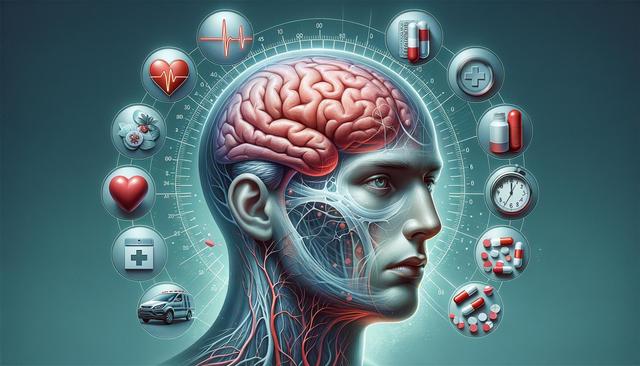Cognitive Behavioral Therapy (CBT) and Its Benefits
Cognitive Behavioral Therapy (CBT) is a widely recognized and structured psychological treatment that helps individuals manage depression and anxiety by changing negative thought patterns and behaviors. This approach is based on the concept that thoughts, feelings, and actions are interconnected, and that altering harmful thinking can improve emotional well-being. CBT is typically conducted over a series of sessions with a licensed therapist and includes developing coping strategies for dealing with distressing situations. Some of the core components include:
- Identifying and challenging unhelpful thoughts
- Practicing problem-solving skills
- Setting realistic goals for behavior change
- Learning relaxation techniques
CBT has shown strong evidence in reducing symptoms of both depression and anxiety, making it a commonly recommended treatment. It can be delivered in individual sessions, group therapy, or even through digital platforms, expanding accessibility for those who may not have access to in-person care.
Medication Options and Considerations
Pharmacological treatment is another effective approach for managing depression and anxiety. Antidepressants, including selective serotonin reuptake inhibitors (SSRIs) and serotonin-norepinephrine reuptake inhibitors (SNRIs), are often prescribed to help regulate mood-related neurotransmitters in the brain. While medications do not cure these conditions, they can substantially reduce symptoms and improve quality of life when used appropriately. Key points to consider include:
- Medications typically take several weeks to show full effect
- Side effects vary and should be discussed with a healthcare provider
- Regular follow-up is important to monitor progress and adjust dosage
It’s crucial for individuals to have open communication with their prescribing doctor to find the right medication and dosage, as responses can differ significantly from person to person. In many cases, medication is most effective when combined with therapy.
Lifestyle Changes That Support Mental Health
In addition to therapy and medication, lifestyle modifications can play a significant role in managing symptoms of depression and anxiety. Healthy habits can enhance treatment outcomes and promote long-term emotional resilience. Some beneficial changes include:
- Regular physical activity, which boosts endorphins and reduces stress
- Balanced nutrition to support brain health
- Adequate sleep to regulate mood and cognitive function
- Mindfulness practices such as meditation or yoga
Incorporating these activities into daily life may not eliminate symptoms entirely, but they can significantly improve overall mood and reduce the severity of episodes. Support from friends and family can also reinforce these habits and provide encouragement during challenging times.
Alternative and Complementary Therapies
Some individuals explore alternative or complementary therapies in conjunction with traditional treatment methods. These approaches may not replace medical care but can offer additional relief and support. Popular complementary treatments include:
- Acupuncture, which some find helpful for reducing anxiety symptoms
- Art or music therapy as a form of emotional expression
- Herbal supplements, though these should be used cautiously and under medical supervision
- Animal-assisted therapy, which can reduce stress and promote comfort
While these methods may provide benefits for some, it’s important to evaluate their effectiveness on a case-by-case basis and ensure they do not interfere with established treatment plans. Always consult a healthcare provider before adding any new therapy to your regimen.
Seeking Professional Help and Building a Support Network
Recognizing the need for help is a critical step toward recovery. Reaching out to a mental health professional can provide access to a range of treatment options, from psychotherapy to psychiatric evaluation. Early intervention often leads to better outcomes, and individuals are encouraged to seek support as soon as symptoms interfere with daily functioning. In addition to professional care, building a strong support network is equally essential. This may include:
- Trusted friends and family members who offer emotional support
- Peer support groups, either in person or online
- Community resources such as helplines or educational programs
Feeling connected to others and having a reliable support system can alleviate feelings of isolation and provide motivation during the recovery process. Mental health treatment is not one-size-fits-all, and combining various approaches often yields the most comprehensive and sustainable results.
Conclusion: Taking a Step Toward Mental Wellness
Depression and anxiety are complex conditions, but they are also highly treatable through a combination of therapies, medication, lifestyle changes, and support systems. Understanding the available treatment options empowers individuals to take meaningful steps toward mental wellness. Whether you’re seeking help for yourself or supporting someone else, knowing that effective, compassionate care exists is an important reassurance. With the right guidance and a consistent approach, managing symptoms and improving quality of life is entirely possible.


